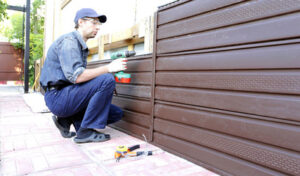Estate Sales can be a great way to declutter, organize, and make money. They’re also a great option for downsizing, moving to another city, or helping elderly parents relocate.
However, before you attend an estate sale, it’s important to understand how they work. For example, asking for prices in advance or requesting discounts on Day 2 is unacceptable. Visit Our Website to learn more.

An estate sale is an ideal way to sort through your possessions and get rid of those you don’t need. It can also be therapeutic, helping you create space and regain control of your home. Whether you’re downsizing or moving to a new home, an estate sale can help you get organized and make the transition seamless.
An on-premises estate sale usually takes place in a home or commercial establishment, with items displayed and priced attractively for shoppers to browse. Typical buyers include collectors, hobbyists and everyday shoppers. Many of these items are not available for purchase in stores, so an estate sale can be an excellent place to find unique treasures. Often, items are located in places that are not readily visible, such as closets, drawers and corners, and may be difficult to find without assistance.
Depending on the circumstances, an estate sale can be a great way to liquidate assets for financial or sentimental reasons. Typically, the heirs of an estate will hire an estate sale company to oversee the process and handle all legal aspects. These companies work with experts to verify legal matters, including property rights and taxes. They also provide valuable insight and advice to help the estate’s heirs navigate the process with ease.
Professional estate sale companies take care of the details, allowing the family to focus on other important tasks while the sale proceeds smoothly. They assess and appraise items, arrange for their display and organization, and market the sale to maximize sales potential. They also clean and dispose of unsold items after the event. Their services are usually based on a percentage of the total sales.
To maximize the success of an estate sale, it’s important to clearly label all items with prices and descriptions. This will ensure that shoppers understand what each item costs and its key features. It’s also a good idea to post photos of your best items on social media and local online classifieds. It’s helpful to hold the sale on a weekend day, as this will allow more people to attend. Using PODS portable storage containers is an easy and efficient way to store your items while you prepare for the estate sale. These containers can be delivered to your home or onsite at the estate sale, giving you 24/7 access to your inventory.
They help you organize your possessions
An estate sale is a unique opportunity for people to buy and sell items that they no longer need or want. They can also help people get organized and clear out clutter in their homes. There are many reasons why people choose to hold an estate sale, including downsizing, moving, or the death of a loved one. Estate sales are often conducted by a professional company that can provide assistance in every aspect of the process, including organizing, advertising, pricing, and selling. The company typically takes 30% – 50% of the total profits from the sale.
There are many different types of items that can be found at an estate sale, ranging from everyday essentials to unique treasures. These items can offer insight into the lives of the sellers and their families, providing a window into their memories and history. Some items may be of particular interest to collectors, while others are useful and practical. For example, buyers might find kitchen appliances, tools, or antique furniture.
Estate sales can be complex and overwhelming, so it is important to work with a reputable estate sale company that will manage the entire process from start to finish. They will organize and inventory items, prepare them for sale, and arrange them to be visually appealing. They can also create vignettes to attract attention and highlight items that are of interest. They will ensure that all legalities are met and will work to maximize financial returns for the seller.
Estate sales are popular among shoppers looking to acquire rare or valuable items at a fraction of retail price. However, there are some common misconceptions about these events that could deter people from taking advantage of this unique opportunity. For example, some people believe that estate sales are only for the wealthy. This is false, as estate sales feature a variety of products from everyday essentials to unique collectibles that appeal to diverse interests and budgets. They also feature a range of prices, from the most expensive to the least, depending on demand and condition.
They generate revenue
Estate Sales are a great way to generate some extra money and help declutter your home. They can be especially useful during a time of transition, such as downsizing or moving to a new location. They can also be a good option for heirs who are overwhelmed by the amount of belongings that their loved one left behind. The funds generated by these sales can be distributed among family members or used to pay off creditors. Regardless of the reason for the sale, it’s usually best to hire a professional company or liquidator to manage the event. These companies offer a variety of services, including appraising and organizing items for sale, pricing them based on their market value, advertising the sale, and managing transaction processes. They can also arrange for disposal of unsold items, if necessary.
There are several key reasons why someone would hold an estate sale, including major life changes like relocating or downsizing, death, divorce, and debt reduction. In addition, these events often prompt a sense of urgency to get rid of unwanted items as quickly as possible.
Most estate and tag-sale companies specialize in a specific demographic or generation, such as Depression-era homeowners who need to downsize to assisted living or boomers who have accumulated a lot of goods over their lifetime. This allows them to understand and respond to their unique needs and concerns.
Many people assume that items at estate sales are overpriced, but the opposite is true. Professionals appraise and price items based on demand and condition, which ensures fair value and the opportunity for negotiation. Additionally, they advertise the sale to attract a wide audience and oversee the logistics of the sale.
Those interested in attending an estate sale should prepare for a long wait, as the event will usually take place over the course of a weekend. In most cases, there is a first-come, first-serve policy, meaning that those who arrive early will be allowed to look at and purchase items before others. Some estate sales may also use a number system, where attendees are given numbers when they line up at the front of the house and are allowed to enter in order of their number.
They provide a way to generate income
Estate Sales are a great way to make some extra cash and get rid of unwanted items. It’s also a great way to honor your loved ones who have passed on by letting their possessions find new life. The proceeds from the sale can be used to help family members or donated to charity. Whether it’s a hobby or part-time income, re-selling items from estate sales is a hot new trend that’s bringing in millions of dollars.
Many people hold estate sales due to major life events, such as relocating or downsizing. Other reasons include the death of a spouse, divorce settlements, and debt reduction. Regardless of the reason, a professional company can facilitate the process and ensure that returns are maximized. It’s important to consider legal and tax considerations before holding an estate sale. These issues can affect the number and value of items sold, as well as any resulting taxes or fees.
It is common to confuse estate sales with garage or yard sales, but there are several key differences. For one, estate sales are typically held over a few days and are open to the public. They also feature a wide variety of items, from high-end furniture and antiques to everyday household goods. Moreover, buyers can negotiate prices on the items they buy.
The process of preparing for an estate sale can be time-consuming and tedious, but there are a few things you can do to make it easier. First, you should determine the value of all your items and separate them into categories. This will make the process of sorting and organising your belongings much easier.
Another tip is to prepare a list of items that you’re ready to sell. This will give you a sense of how much money you’ll be able to generate. It’s also a good idea to have helpers on hand to answer questions and provide assistance to customers.
Having helpers is important, especially if you’re hosting an estate sale in a large house. You may have dozens of customers at the same time, so it’s crucial that you have enough staff to handle all the requests. In addition, your helpers can act as additional cashiers for the sale, if necessary.








